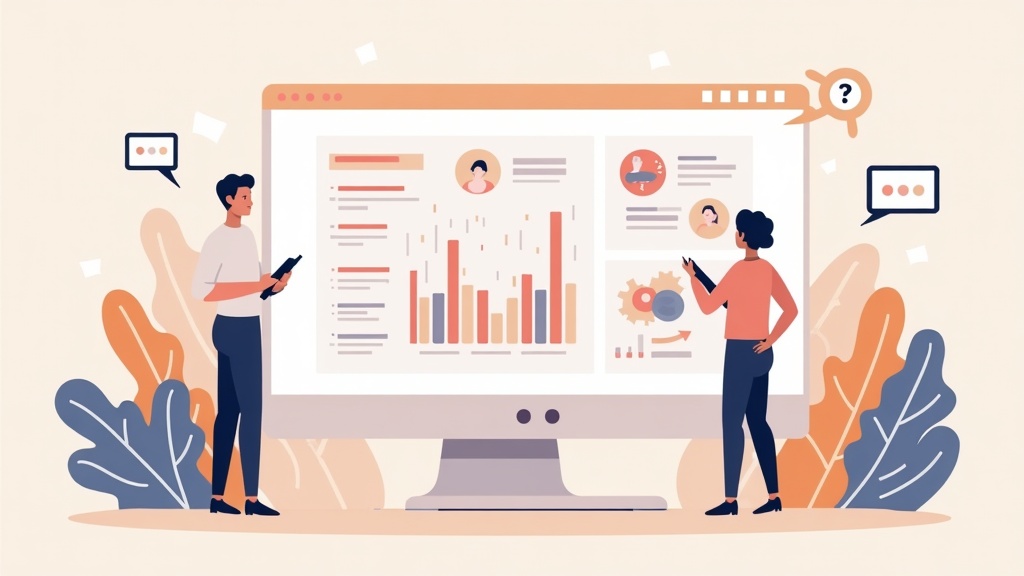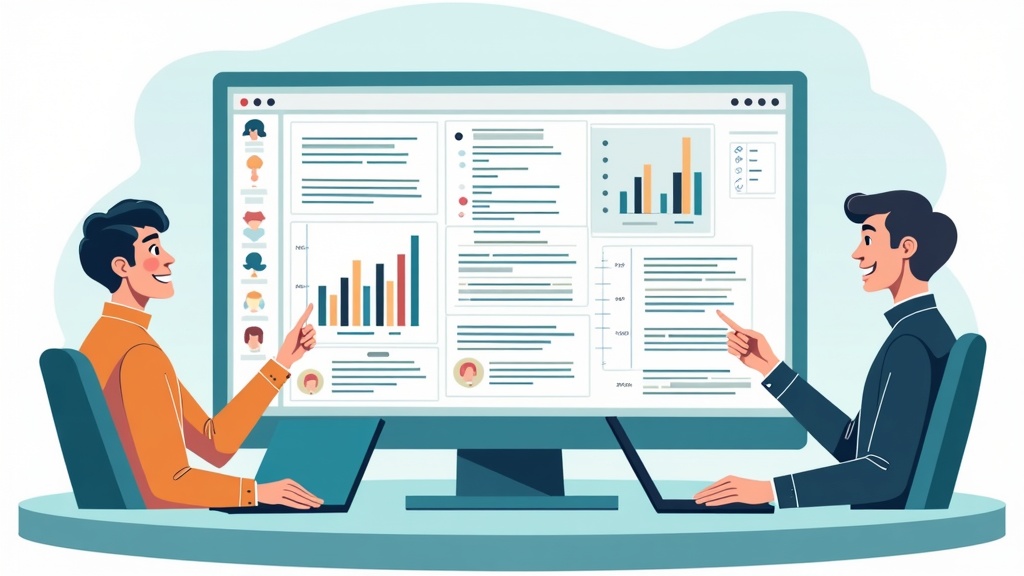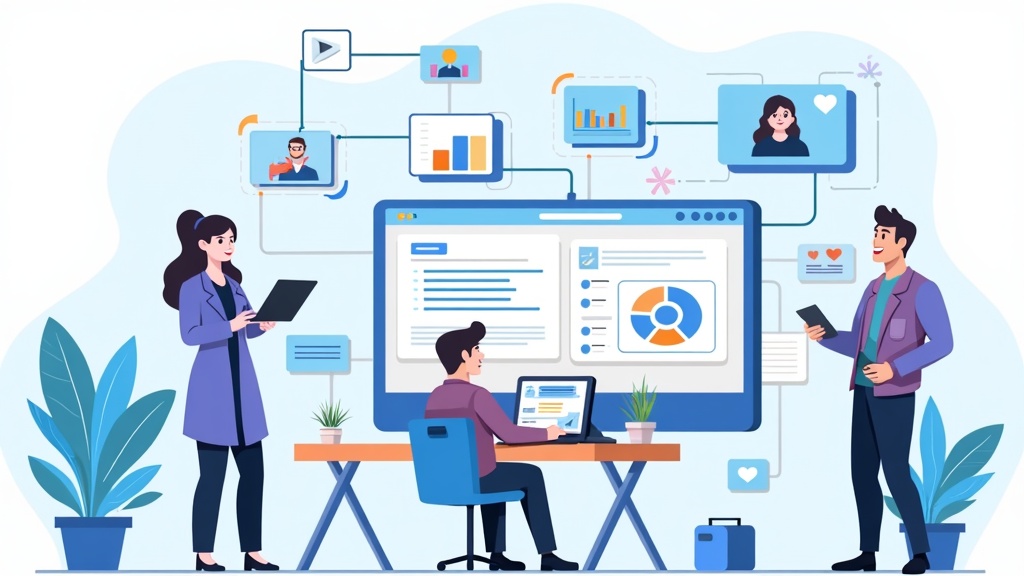Research Tools - Complete Guide
Find the right research tools for qualitative analysis, quantitative surveys, AI automation, data visualization, and user research. Compare platforms and build your research tech stack.
12 min read
Agent Interviews
Updated: 2025-11-13
Introduction
The right research tools make the difference between drowning in data and extracting insights that drive decisions.

If you're manually coding interviews, wrestling with survey platforms, or building reports in PowerPoint, you're wasting time on mechanics instead of thinking. Modern research tools automate the tedious stuff, handle analysis at scale, and let you focus on what actually matters—understanding what the data means and what to do about it.
This guide is for researchers, product teams, marketers, and anyone running user studies or market research. You'll learn what tool categories exist, when you need them, and how to build a tech stack that makes research faster and better without breaking the budget.
The goal isn't collecting every tool. It's building a system where tools work together, data flows smoothly, and you spend time on insights instead of data wrangling.
What Makes a Good Research Tool
Good tools disappear. You're thinking about research questions, not fighting software.
The best tools integrate into your workflow naturally. They're intuitive enough that teams actually use them. They play well with other tools you're already using. They handle the grunt work—data cleaning, transcription, basic analysis—while leaving you in control of interpretation and strategy.
Security matters, especially with participant data. Look for tools that take privacy seriously, comply with regulations, and give you control over who sees what.
Scalability is about growing without switching tools. What works for 10 interviews should work for 100. What handles one researcher should handle a team.

AI Research Tools
AI tools are changing what's possible in research. They're handling tasks that used to take weeks, analyzing patterns humans miss, and making certain types of research practical that weren't before.
AI Analysis
AI analysis tools process transcripts, identify themes, detect sentiment, and spot patterns across large datasets. They're not replacing human judgment—they're doing the first pass so you can focus on interpretation and strategy.
These tools excel at handling volume. Feed them 100 interviews and they'll identify recurring themes, sentiment patterns, and topic clusters. You still validate, refine, and interpret, but you're starting from structured insights instead of raw transcripts.
Insight Generation
AI insight generation goes beyond simple analysis to identify relationships, predict patterns, and surface unexpected connections. Machine learning models spot correlations between variables, segment customers based on behavior patterns, and forecast trends.
The value is in seeing things you wouldn't notice manually. When patterns involve multiple variables across hundreds of data points, human analysis misses stuff. AI finds it.
Transcription Automation
Automated transcription turns audio and video into searchable text, usually within minutes. Modern tools handle multiple speakers, accents, and industry terminology with impressive accuracy.
This alone saves enormous time. Instead of days for transcription, you're analyzing the same day you conduct interviews. Tools like Otter, Rev, and Descript have made manual transcription mostly obsolete except for the most demanding accuracy needs.
Learn more about AI research tools →

Qualitative Analysis Tools
Qualitative tools help you analyze interviews, focus groups, observations, and open-ended data systematically.
Coding Software
Qualitative coding software like NVivo, Atlas.ti, and Dedoose lets you organize and analyze unstructured data. You're coding text, images, audio, and video—tagging content with labels, building hierarchies of themes, and exploring relationships between concepts.
These tools handle large volumes of qualitative data while maintaining analytical rigor. They're essential for academic research and serious qualitative analysis work.
Live Qual Platforms
Live qualitative platforms like Discuss.io, Remesh, and Recollective enable remote interviews, focus groups, and online communities. You're conducting research without geographic constraints, recording everything, and often getting built-in transcription.
The pandemic accelerated adoption but the benefits remain—lower costs, faster scheduling, broader participant reach, and automatic documentation.
Transcription Services
Professional transcription services provide human transcription when accuracy really matters—legal research, academic work, or highly technical content. They're more expensive than automated tools but deliver higher accuracy with complex audio.
Transcription Software
Transcription software automates audio-to-text conversion. Tools are fast, affordable, and increasingly accurate. For most research needs, they're good enough and dramatically faster than manual transcription.
Learn more about qualitative research tools →
Quantitative Tools
Quantitative tools handle surveys, statistical analysis, and numerical data.
Statistical Software
Statistical software like SPSS, R, Stata, and SAS provides serious analytical horsepower. You're running regression analyses, testing hypotheses, modeling relationships, and producing publication-quality statistical outputs.
These tools require statistical knowledge but deliver sophisticated analysis capabilities that survey platforms can't match. R is free and increasingly popular. SPSS dominates in business and social science. SAS and Stata have specialized followings.
Survey Platforms
Survey platforms like Qualtrics, SurveyMonkey, and Typeform handle questionnaire design, distribution, and basic analysis. Modern platforms include logic branching, quota management, panel integration, and real-time reporting.
Qualtrics leads in enterprise features and sophistication. SurveyMonkey wins on ease of use. Google Forms works for simple needs. Your choice depends on budget, complexity, and integration requirements.
See the Quantitative Tools section above for more details.
User Research Platforms
User research tools focus on understanding product users through testing, observation, and feedback.
Participant Recruitment
Participant recruitment platforms connect researchers with study participants. Services like UserInterviews, Respondent, and User Testing maintain panels of potential participants you can screen and schedule.
Good recruitment platforms handle screening, scheduling, incentive payments, and no-show management. They save enormous time compared to recruiting participants yourself.
Recruitment Platforms
Specialized recruitment platforms for user research offer vetted participants, advanced screening, and integrated scheduling. You're defining criteria, launching recruitment, and scheduling sessions within days instead of weeks.
Prototype Testing
Prototype testing tools integrate with design software to test concepts before building them. Users interact with prototypes while tools record clicks, navigation paths, task completion, and feedback.
Tools like Maze, UsabilityHub, and UserTesting make early-stage testing practical and fast. You're validating ideas before committing development resources.
Usability Testing
Usability testing platforms enable moderated and unmoderated testing of websites, apps, and interfaces. You're watching users attempt tasks, identifying friction points, and collecting feedback.
UserTesting, Lookback, and UserZoom specialize in different aspects—remote testing, moderated sessions, or enterprise research programs. All capture video, clicks, and user commentary.
User Interview Platforms
User interview platforms streamline scheduling, conducting, and analyzing user interviews. Some integrate video conferencing, transcription, and note-taking. Others focus on participant management and scheduling.
Learn more about user research tools →
Data Visualization
Visualization tools turn data into charts, dashboards, and presentations that communicate findings.
Chart Software
Chart software creates individual visualizations—bar charts, line graphs, heatmaps, and specialized research graphics. Excel works for basics. Tools like Datawrapper and Flourish create more sophisticated, publication-ready charts.
Good chart tools offer templates, customization options, and export formats that work for presentations, reports, and publications.
Dashboard Tools
Dashboard tools like Tableau, Power BI, and Looker create interactive, updating dashboards that stakeholders can explore. You're connecting to data sources, building visualizations, and creating interfaces where people filter, drill down, and explore.
Dashboards make research ongoing rather than one-time. Instead of static reports, stakeholders access living dashboards that update with new data.
Learn more about data visualization tools →
Research Operations
Research operations tools manage projects, participants, and team collaboration.
Participant Management
Participant management systems track research participants—contact info, demographics, participation history, incentives paid, and consent documentation. For organizations running regular research, participant databases become valuable assets.
Systems like Ethnio and Respondent Database help maintain participant relationships and enable faster recruitment for future studies.
Project Management
Project management tools designed for research handle study timelines, team coordination, deliverable tracking, and stakeholder communication. Tools like Dovetail and Great Question build research-specific features into project management.
Generic tools like Asana and Trello work too, especially for smaller teams.
Research CRM
Research CRMs track participant relationships, study participation, and research insights at a organizational level. They're connecting research projects, maintaining institutional knowledge, and ensuring you're not over-researching the same participants.
Learn more about research operations tools →

Building Your Research Tech Stack
Start with your most painful problems. What's taking too much time? What's error-prone? What requires skills you don't have?
Don't buy everything at once. Start with one or two tools that solve immediate problems. Learn them thoroughly. Then add complementary tools that integrate well.
Integration matters more as your stack grows. Tools that share data, trigger each other, or connect through APIs create workflows where work flows rather than requiring manual data movement between systems.
Consider total cost including training, not just licenses. A cheaper tool that nobody uses costs more than a slightly expensive tool everyone adopts.
Cloud-based tools usually beat locally-installed software for collaboration, updates, and avoiding IT headaches. Unless you've got serious security requirements, go cloud.
Common Tool Categories by Research Type
Qualitative researchers need transcription, coding software, and potentially AI analysis tools. Start with good transcription and consider NVivo or Atlas.ti for serious analysis.
Quantitative researchers need survey platforms and statistical software. Qualtrics plus R or SPSS covers most needs.
User researchers need recruitment platforms, testing tools, and video analysis. UserInterviews for recruitment, UserTesting for unmoderated testing, and Dovetail for analysis is a solid stack.
Market researchers need survey tools, analytics platforms, and visualization software. Qualtrics, Tableau, and good transcription covers broad ground.
Academic researchers need tools that support rigorous methodology and produce publication-quality outputs. Budget often constrains choices but R (free) and open-source tools help.
Tool Selection Mistakes to Avoid
Don't choose tools because competitors use them. Your needs differ. What works for them might not work for you.
Don't prioritize features over usability. The most powerful tool you won't use is worthless. The simpler tool you'll actually use wins.
Don't ignore integration. Tools that don't talk to each other create manual work bridging gaps.
Don't skip trials. Actually use tools with real projects before buying. Marketing promises and reality often diverge.
Don't forget about training. Budget time for learning tools properly. Undertrained teams use 20% of capabilities and get frustrated.
Get Started with Agent Interviews
Agent Interviews combines AI-powered research capabilities with human insight depth. Our platform handles recruitment, conducts intelligent interviews, generates transcripts, identifies themes, and delivers insights—all while maintaining research quality standards.
You get qualitative depth with quantitative speed. Whether you're testing concepts, understanding users, or exploring markets, Agent Interviews makes research practical for real-world timelines and budgets without sacrificing quality.
